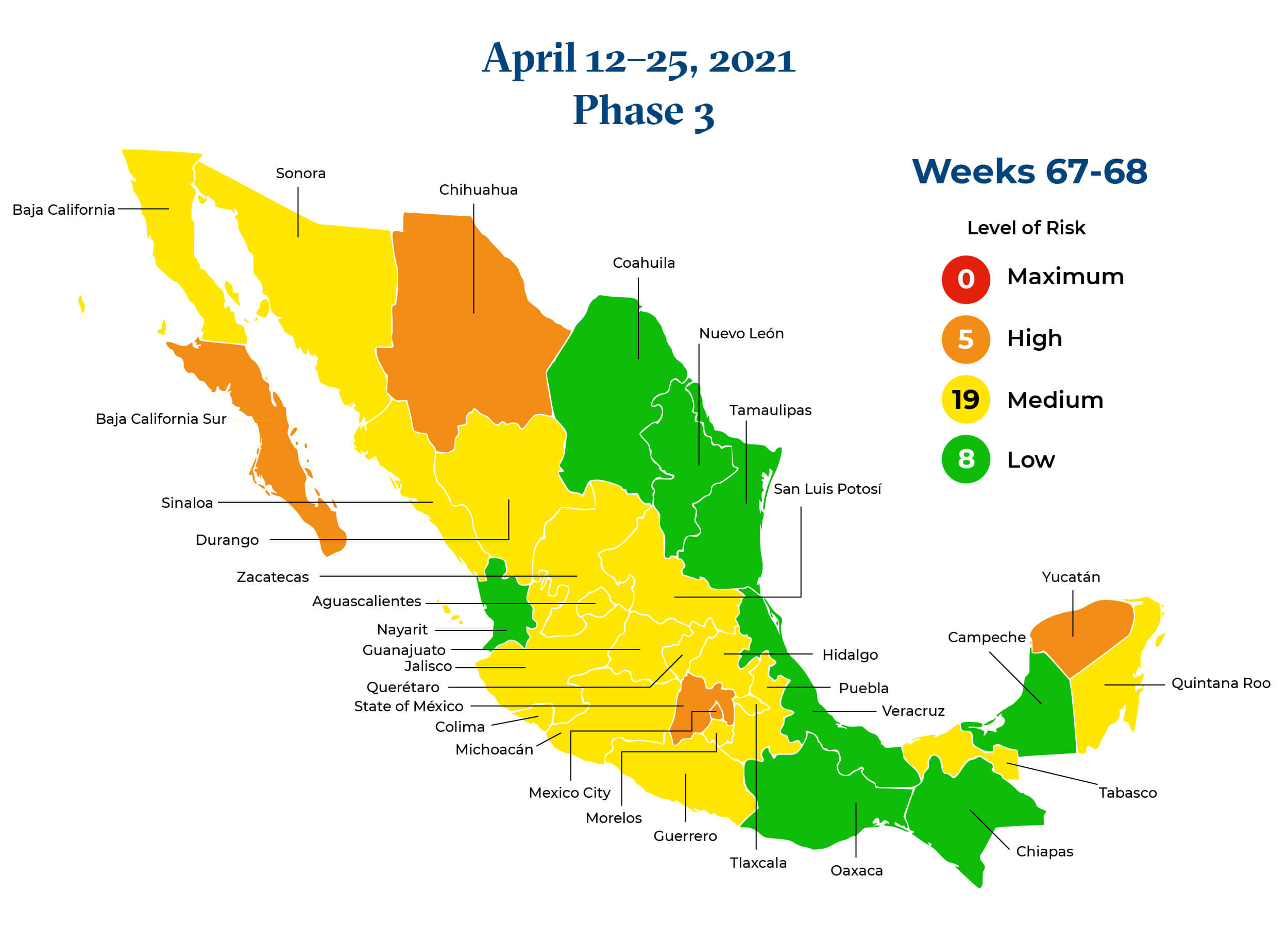The degree of pandemic risk in Mexico has been steadily improving nationwide, and since March 1, 2021, none of the 32 states has been required to halt all nonessential activities under the strictest tier—called the “red traffic light”—of the federal government’s four-tiered COVID-19 traffic light monitoring system.
The traffic light system also shows improvement across the system’s other three categories, in decreasing order of restriction: 5 states in orange status (compared with 7 in the previous report for March 29–April 11, 2021); 19 in yellow status (compared with 18 in the previous report); and 8 in green status, at which point all restrictions are lifted (compared with 7 in the previous report).
However, the government continues to be concerned about the increased mobility during the vacation season that may result in a third pandemic wave, and therefore is urging the public to continue exercising caution by observing preventative measures, such as wearing masks and practicing social distancing.
The monitoring system, which is updated every two weeks, was implemented in June 2020, and it is used to alert residents to the epidemiological risks of COVID-19 and to provide guidance on restrictions on certain activities in each of the country’s states.
Below is a map for the period of April 12–25, 2021, indicating the COVID-19 risk level in each of the states.
This chart presents the traffic light status of each state, and, as applicable, variations between federal and local traffic light statuses based on publications of the federal Ministry of Health and status reports provided by each state.
According to federal health data, as of April 11, 2021, there had been an estimated 2,472,166 cases of COVID-19 infection and 209,338 deaths due to COVID-19 in Mexico since the pandemic began. Mexico’s government has released complete vaccination schedules, which show that 1.64 percent of Mexico’s population has been fully vaccinated.
In other signs of improvement, 84 percent of general hospital beds are available, and 81 percent of ventilator beds are available. In addition, no states have a hospital occupancy greater than 50 percent of capacity.
Federal Labor Law Reform
As businesses reopen, employers may want to note other developments that may affect their operations. Although the General Congress of the United Mexican States has not yet approved the reform initiative to the Federal Labor Law, that reform could be approved before the end of the current congressional sessions—that is, before April 30, 2021. The pillars of the reform initiative are the following:
- a prohibition on the subcontracting of personnel;
- regulation of the subcontracting of specialized services; and
- recalculation of the profit sharing (PTU) formula.
If the reform is not approved during the current period of congressional sessions, there are two options:
- the General Congress could convene an extraordinary period to vote on whether to approve the Federal Labor Law reform; or
- the General Congress could postpone a vote on the reform until the second period of sessions in 2021 (September 1, 2021–December 15, 2021).
Ogletree Deakins will continue to monitor and report on developments with respect to the COVID-19 pandemic and will post updates in the firm’s Coronavirus (COVID-19) Resource Center as additional information becomes available. Important information for employers is also available via the firm’s webinar and podcast programs.








